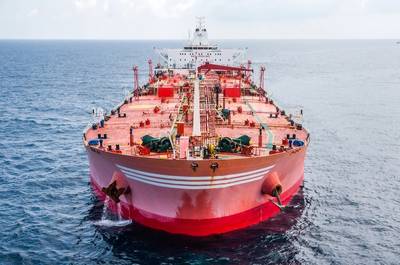US Gives Grace Period to Cargoes Under Russia Oil Product Price Cap
The U.S. Treasury Department said late on Wednesday that shipments facing the G7's upcoming price cap on oil products such as diesel and gasoline from Russia will have a grace period to arrive at their destination.
G7 democracies and Australia are planning to cap prices on two oil products from Russia from Feb. 5 as part of their effort to reduce Moscow's export revenues as it wages war in Ukraine. The move will follow the G7's cap on Russia's seaborne crude oil exports that went into effect on Dec. 5.
The measures seek to limit Russia's revenues gradually. The G7 put the cap on crude at $60 a barrel, slightly above the price for Russian Urals oil and despite calls for a lower cap, in order to keep much of Russia's oil flowing to markets.
Treasury said in a Frequently Asked Questions item late on Wednesday that cargoes of oil products that load before Feb. 5 and are unloaded at the port of destination before 00:01 ET (0501 GMT) on April 1 will not be subject to the price cap. The crude oil price cap also had a grace period.
The move came after Deputy Treasury Secretary Wally Adeyemo went on a three-day trip to Berlin and Brussels for meetings about the price cap and support for Ukraine.
The imposition of a cap is reducing some of Russia's oil sales as many market players eschew dealing in the oil to get used to the cap mechanism and avoid any potential penalties. Exports of Urals crude blend from Baltic Sea ports may fall by up to a fifth in December, after the price cap and an EU embargo on Russian oil took effect, according to traders and Reuters calculations.
Russia has said it will not abide by the cap even if it has to cut production.
The G7 will meet every two months starting in January to discuss adjusting the price caps.
(Reuters - Reporting by Timothy Gardner)















